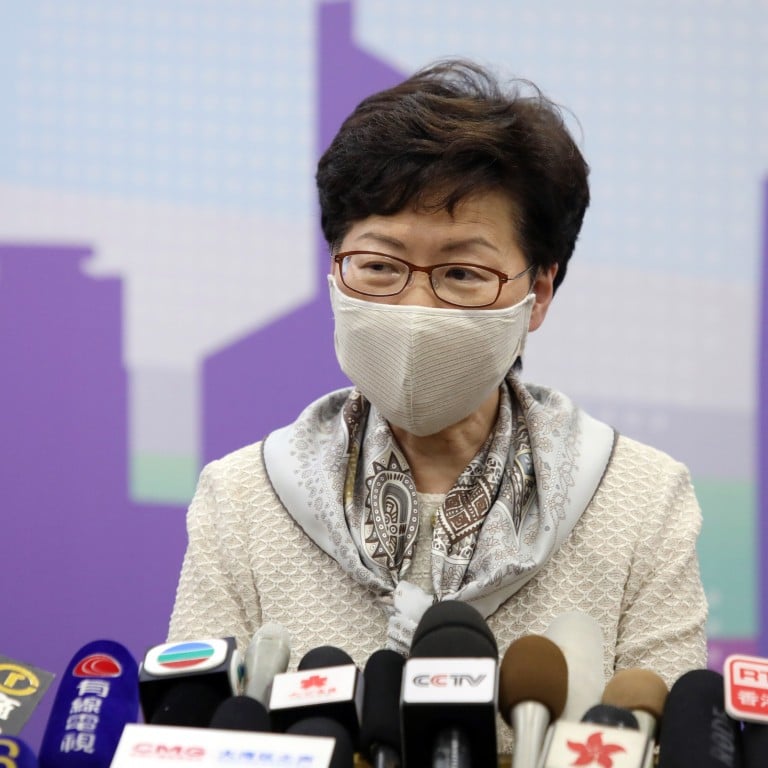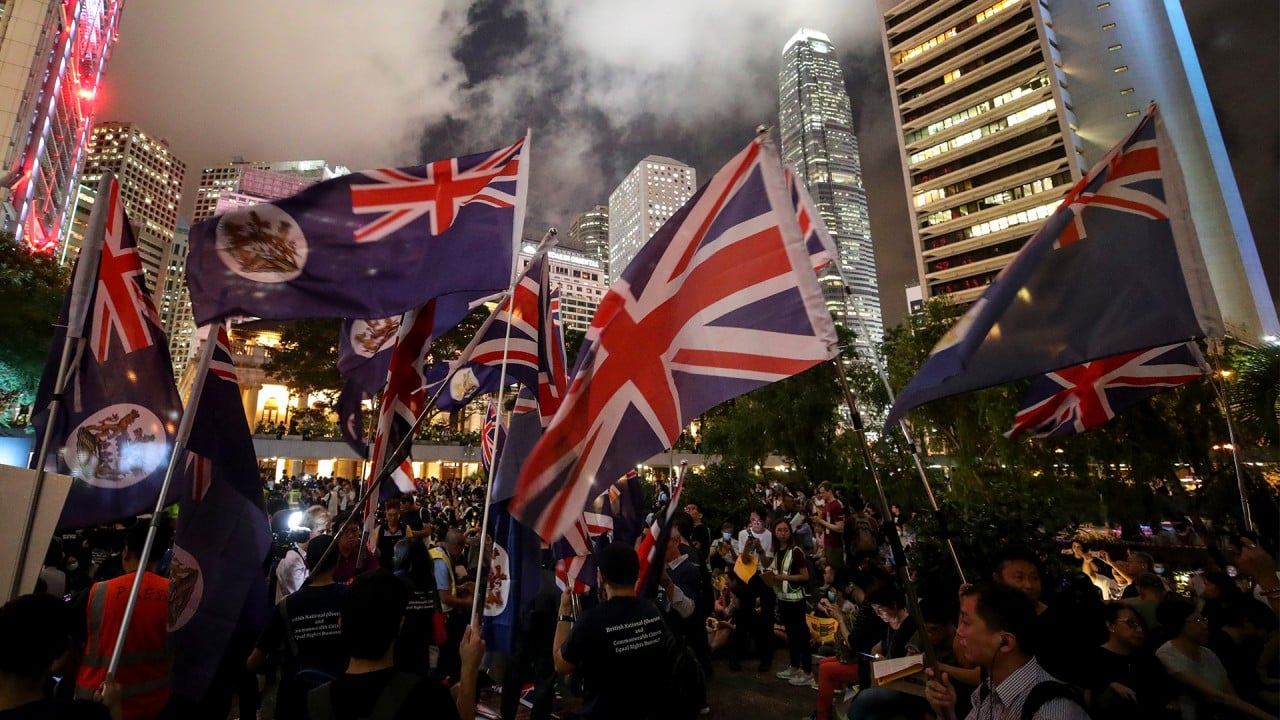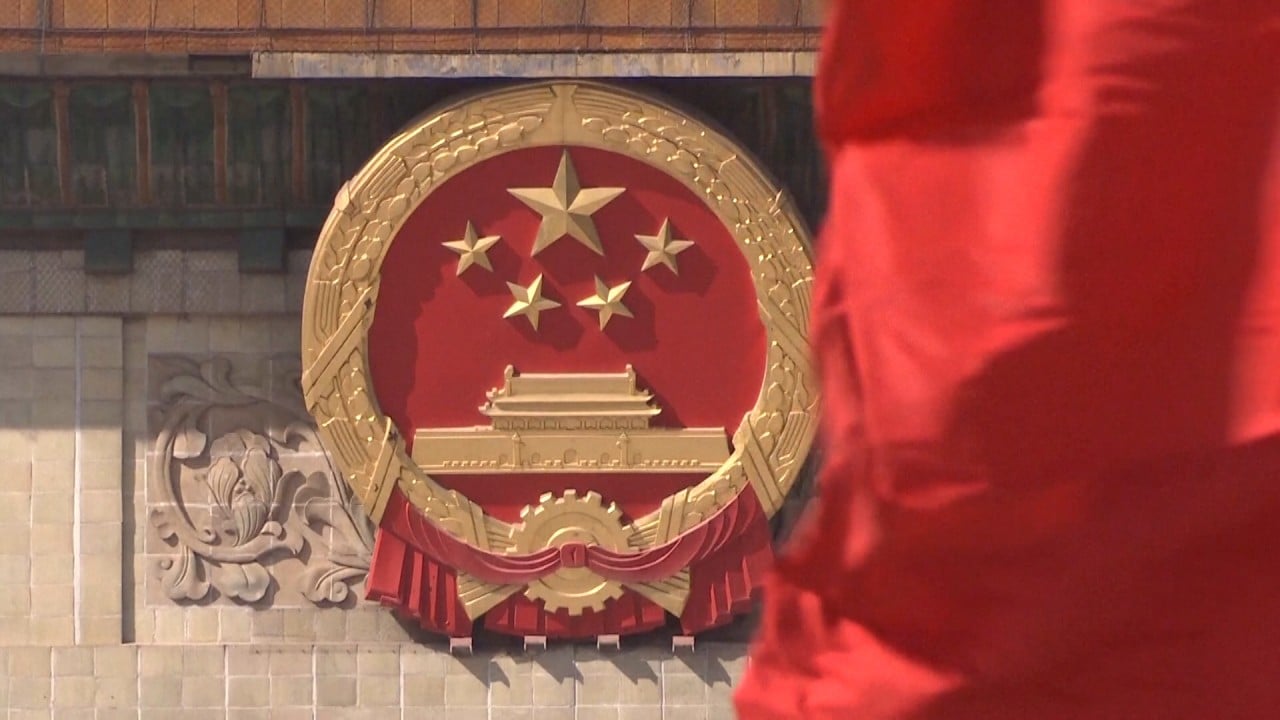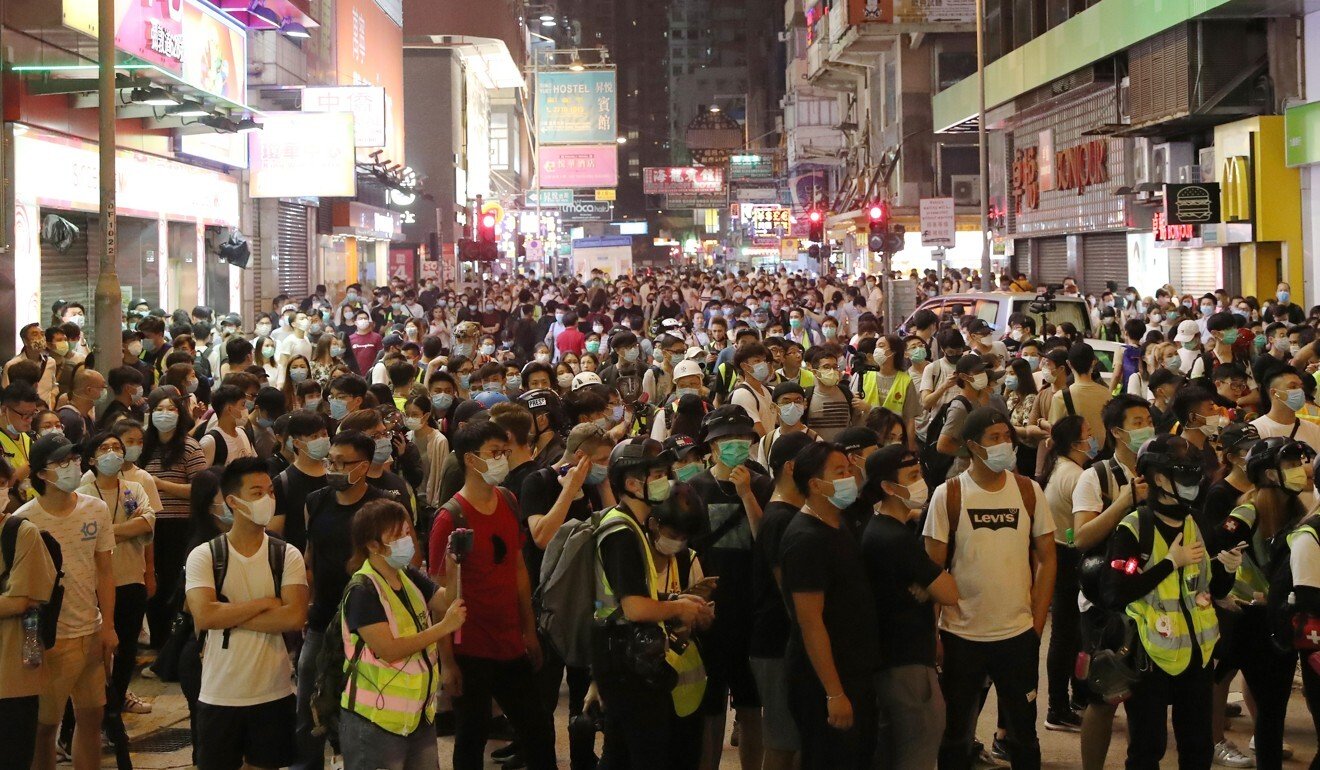
Beijing has heard opinion of Hong Kong people and remains ‘very firm’ on national security law for city, Carrie Lam says after visit
- The central government is looking to safeguard national security as well as the city’s stability through the new law, according to Lam
- But Civic Party lawmaker Tanya Chan, who convenes a group of opposition parties, has complained that views on the bill were heard in Beijing instead of the city
Han had reiterated the new law would only target “a small minority” of criminals in Hong Kong, Lam said, in a meeting also attended by state public security minister Zhao Kezhi and Xia Baolong, director of the State Council’s Hong Kong and Macau Affairs Office.
The official Xinhua news agency also confirmed that Han was now head of the Chinese Communist Party’s Central Leading Group on Hong Kong and Macau Affairs, elevated and renamed from the previous central coordinating group, with Zhao and Xia being Han’s deputies.

01:12
Hongkongers with BN(O) could be ‘eligible for Britain citizenship if national security law enacted’
Zhao’s unusual presence at such a meeting was also seen by analysts as indicative that the issue of security was now Beijing’s top concern when it came to Hong Kong affairs.
State broadcaster CCTV reported that during the meeting, Han had made it clear that the fundamental purpose of the new law was “to protect national sovereignty … and to protect the long-term prosperity and stability of Hong Kong”.
“Han told us that this time the central government is very firm on the legislative work,” Lam said. “The law will only punish a small minority of people who engage in acts and activities that seriously threaten national security.”
National security law: Carrie Lam to visit Beijing, opposition lawmaker banned from questioning legislation
The city’s leader said she had told Han that her government would firmly support Beijing in the legislative work, and establish a sound enforcement mechanism to protect national security.
Asked if she had reflected the concerns of Hong Kong people and foreign critics over the implications for the city’s existing freedoms, Lam said: “I will not disclose what we discussed in the meeting. I can only say that … on this important Hong Kong matter, central government officials can hear the opinion raised in Hong Kong, as well as those raised in foreign countries.
“I believe that they don’t need the chief executive to come to Beijing personally to reflect those.”
The National People’s Congress (NPC) last Thursday endorsed a resolution for its Standing Committee, China’s top legislative body, to tailor-make the national security law for Hong Kong.

02:23
Beijing remains ‘very firm’ on national security law for Hong Kong, says city’s leader Carrie Lam
The law is likely to be passed by August, with Beijing identifying it as necessary to tackle anti-government protest violence and external interference.
It aims to prevent, stop and punish secession, subversion of state power, terrorism and foreign interference in Hong Kong, but opposition politicians and critics warn it could be used to suppress dissent and erode long-standing freedoms.
Youth activist Joshua Wong Chi-fung announced on Wednesday that his political group, Demosisto, had collected more than 70,000 signatures from Hongkongers urging European leaders to speak up against Beijing’s national security legislation.
Coronavirus: ‘super spreader’ fears in Hong Kong ease after day of no new Covid-19 cases
But Lam said the city’s government would not give in to pressure from foreign politicians, who held “double standards” in criticising Beijing while advocating protection for their own countries’ security.
Asked if the public would be consulted on the proposed law, Lam said her administration would have to follow mainland China’s rules as this was a piece of national legislation.
The chief executive added that she was told Beijing authorities would be listening to opinions raised by various sectors, including the Legislative Council’s president, legal experts and local delegates to China’s legislature and top political advisory body.
“The central government will organise seminars in Shenzhen and Beijing … so that various sectors can express their views,” she added.
Civic Party lawmaker Tanya Chan, who convenes a group of opposition parties, described Lam’s attitude toward Beijing as “extremely submissive”.
“The place where views will be heard is not even in town,” she noted.

But lawmaker Wong Kwok-kin, of the pro-Beijing Federation of Trade Unions, said Lam’s account showed that while the NPC Standing Committee had already decided the framework of the law, there was still room for finer details to be adjusted.
“[Possible adjustments could include] whether mainland national security officers will have jurisdiction in Hong Kong,” he said.
On Zhao’s presence, Tian Feilong, a Hong Kong affairs expert at Beihang University in Beijing, said it indicated that the public security chief would be in charge of the establishment, training and preparation for law enforcement of the national security apparatus in Hong Kong.
“Zhao’s new role means the issue of national security is now at a more prominent place in the central government’s practice of ‘one country, two systems’,” he said.
Earlier on Wednesday, Hong Kong’s opposition pan-democrats criticised NPC Standing Committee member Tam Yiu-chung for suggesting that local politicians should not object to the enactment of national security legislation.
“Whether they are councillors or standing for elections, if they object to it … they should be disqualified!” Tam wrote in an article on the latest issue of Bauhinia magazine, which was published on Monday.
Tam later said he was not trying to put pressure on the city’s officials.
It also emerged on Wednesday that Hong Kong Bar Association chairman Philip Dykes had written to the top national legislative body, urging it to conduct a proper consultation on the new law.
Additional reporting by Sum Lok-kei, Kimmy Chung and Chris Lau


